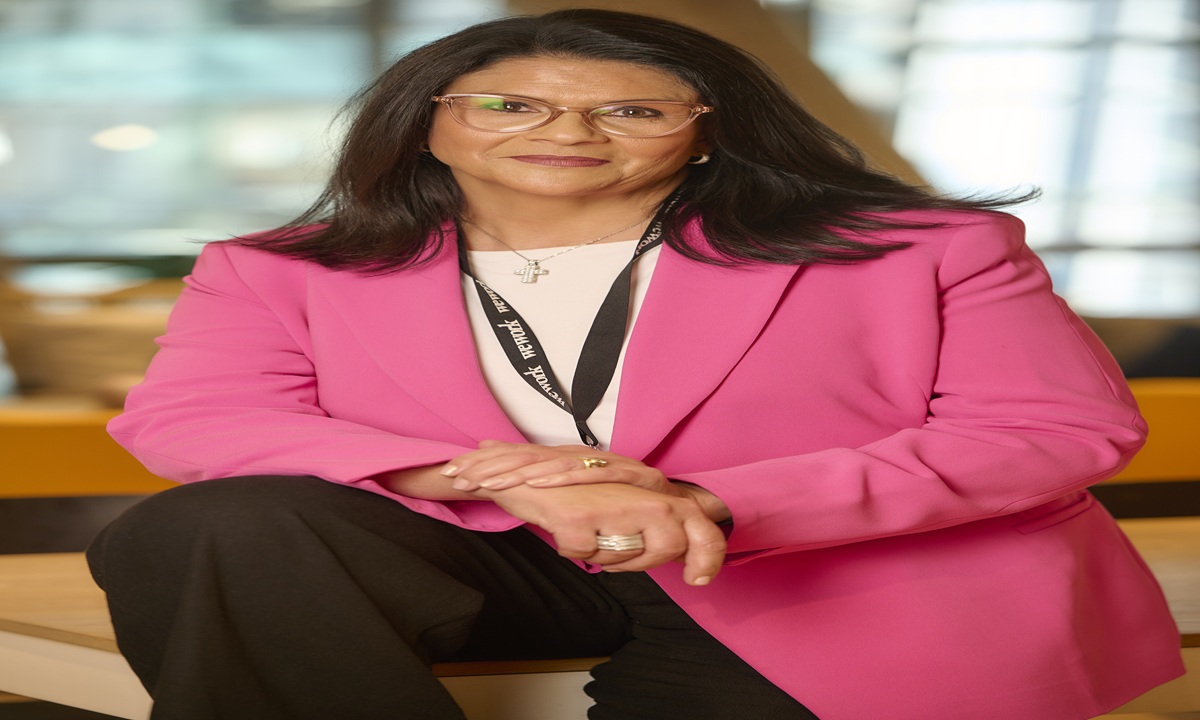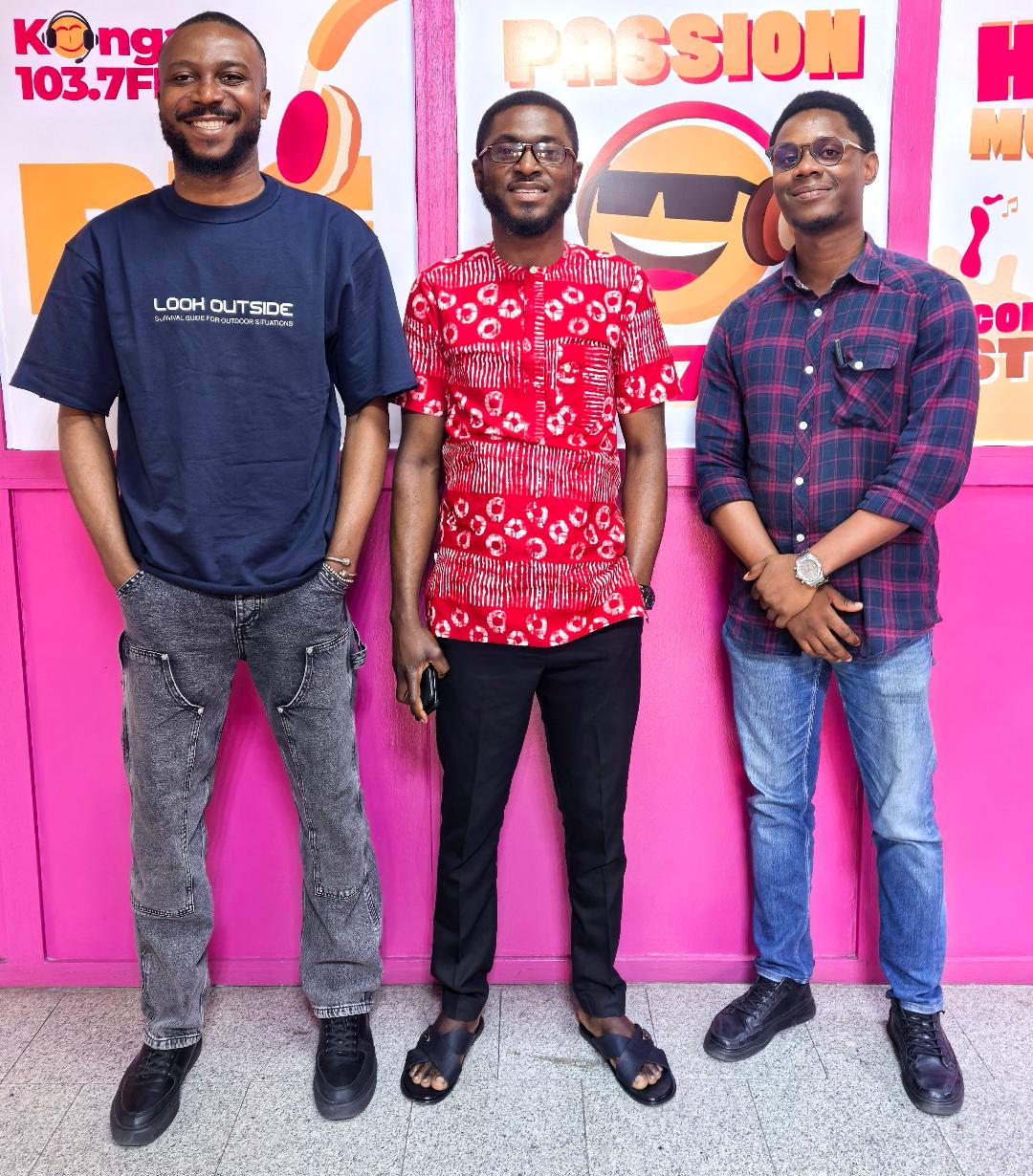Broadcasting
TStore partners MTN, 9Mobile, Rolls Out Freebies on Infinix, Tecno Smartphones Purchase

TStore, a frontline retail platform, has partnered with leading telecoms giants, MTN and 9Mobile to offer bargain-hungry shoppers mouthwatering freebies on every purchase of specific models of Tecno and Infinix smartphones.

The offer, tagged Jara Sales, is available in various MTN and 9Mobile partner stores nationwide.
Equally important, shoppers who walk into any of these stores to purchase any of the specified devices instantly gets a free powerbank or headset. The offer applies to shoppers who purchase either the Tecno Camon 17 series, Tecno Spark 7, Infinix Note 10 series and Infinix Note 10T series.
To benefit from the unmatched deals, customers are expected to purchase any of the smartphones at participating MTN and 9Mobile stores located in major cities across Nigeria.
The MTN stores include the following: Ibadan Service Centre, Mobil Roundabout, Ring Road, Ibadan, Oyo; Ibadan 2 Service Centre, MTN Office, Opposite NECO Office, Yidi, AgodiGate, Ibadan; Asaba Service Centre, Km. 129, Benin – Asaba Expressway, Asaba, Delta; New Port Harcourt Service Centre, 234b Aba Expressway opp Hannah Fast Food Port Harcourt; Enugu Service Centre, 34 Zik Avenue, Enugu; Kaduna Service Centre, Bank Road, Off Ahmadu Bello Way, Kaduna; Kano Service Centre, 2A Civic Center, (Behind Kano post office), Kano; Maitama Service Centre, Plot 2784, Shehu Shagari Way, Maitama, Abuja and the Sokoto Service Centre, No. 6 Sultan Abubakar Road, Opposite Women centre, Sokoto
Also, interested shoppers can grab the offer at 26 participating 9Mobile offices located across Lagos, including Ikeja Mall, Adebola House on Isaac John Str., GRA Ikeja and on Adeola Odeku at 43 Adeola Odeku, Victoria Island, among others.
With the offer only based on limited stock, interested shoppers can also call 09029174191, 09070002697, 09070002683 to take advantage.
For those in other parts of the country, the offer can also be accessed in 9Mobile stores in Abia, Abuja, Adamawa, Akwa Ibom, Bauchi, Bayelsa, Borno, Delta, Edo, Enugu, Jigawa, Kaduna, Kano, Kwara, Ogun, Osun, Oyo, Plateau, Rivers, Sokoto, Taraba and Yobe state.
Most importantly, the Jara Sales also affords customers a chance to enjoy exciting discounts and price slashes on the devices on offer, in addition to the freebies accompanying each purchase.
Broadcasting
Amaarae Crowned Spotify’s EQUAL Africa Artist for August

Spotify has named Ghanaian trailblazer Amaarae as the EQUAL Africa artist for August, spotlighting her as one of the continent’s artists who continues to push creative and cultural boundaries with every beat, lyric, and look.

Amaarae, born Ama Serwah Genfi, raised between Ghana and the U.S.A often pulls her musical inspiration from the cultures and genres she grew up with. She has consistently pushed the boundaries of sound and identity, with her unique fusion of alternative, pop, R&B, and Afrobeats cementing her place as a singular voice in modern music.
Her musical journey took a turn in a computer lab in Ghana in 2009, where she taught herself to make beats on a cracked version of FL Studio. That moment sparked the fire for a career that would go on to produce game-changing projects like “The Angel You Don’t Know” and global hits such as “SAD GIRLZ LUV MONEY”.
Amaarae’s inclusion on Spotify’s Global Impact List for the first half of the year, highlighting the most-exported Ghanaian songs, was no surprise. She has become a symbol of how African music is travelling further, faster, and louder than ever before.
With her latest album BLACK STAR she returns to her Ghanaian roots with bold energy, crafting what she calls a “rallying cry for youth culture around the world. This album is bringing the alternative community to the forefront and being fearless about that.”
“I navigate the music world with balance, willpower, and strength. The challenges are real, don’t get me wrong, but I put my blinders on, lock into tunnel vision, and get to work. And when I come across another woman on the journey, especially a Black woman, I do my best to share knowledge, create opportunities, and lighten the load where I can,” says Amaarae.
As part of Spotify’s EQUAL programme, which amplifies women’s voices worldwide, Amaarae joins a growing list of African women shaping the future through sound and self-expression.
“Amaarae embodies the spirit of boundary-pushing creativity that EQUAL stands for,” says Phiona Okumu, Spotify’s Head of Music for Sub-Saharan Africa. “Her artistry is bold, distinct, and unapologetically authentic – qualities that continue to inspire a new generation of artists across the continent and beyond.”
We sat down with Amaarae to learn more about her and her music:
1. What is that one surprising thing your fans might not know about you?
Amaarae: I’m one step away from being legally blind! My vision is a -7 and I have astigmatism!!
2. When did you realise that making music was in your destiny and what is your WHY for pursuing this craft?
Amaarae: When I moved back home to Ghana in 2009, I was learning how to make beats and record myself at the back of the computer lab. Someone had installed a cracked version of FL.
3. Which African songs or artists did you grow up listening to?
Amaarae: The list goes on and on. Daddy LUMBA (RIP), Terri Bonchaka, MzBel, Abrewa Nana, Obrafour’s legendary album Pae Mu Ka, Sarkodie, Kwadwo Antwi. I could go all day.
4. To someone who has never heard your music, how would you describe the sound, tone, and style?
Amaarae: Let’s encourage listeners to be curious and adventurous! If you’re reading this and you’ve never heard my music, I dare you to go listen! And tell me how YOU would describe my sound.
5. Any advice for someone dreading following their dreams?
Amaarae: The regret does more damage than the effort.
Broadcasting
Humans + Machines: Building the workforce of the future

By Ursula Fear, Senior Talent Programme Manager | Salesforce
Is AI coming for your job, or is it already working beside you? As its use becomes more routine, artificial intelligence is looking less like a threat and more like a teammate: answering queries, making decisions, chasing leads, processing invoices, and drafting content around the clock.

Ursula Fear, Senior Talent Program Manager, Salesforce
This new class of digital labour is changing how teams function, how targets are met, and how people spend their time at work. From now on, almost every job, team, and company will involve AI agents – systems that can analyse vast datasets, apply human-like reasoning, and act independently. Their presence is set to influence workflows, increase productivity, support innovation, and redefine roles across the organisation.
Rather than replacing people, AI is tilting the workload. Salesforce research shows that 23% of HR teams plan to redeploy employees into roles that make better use of their uniquely human strengths. At the same time, agentic AI adoption is projected to surge by 327% over the next two years (from roughly 15% adoption today to about 64% by 2027).
This shift is tied to anticipated productivity gains of 30% per employee and labour cost reductions of 19%, equating to about $11,000 in savings per employee annually, based on Organisation for Economic Co-operation and Development (OECD) wage averages. Rather than replacing people, organisations are preparing to reskill and redeploy workers, enabling humans to focus on higher-value roles that emphasise creativity, strategy, and interpersonal skills.
A recent Gartner poll further found that 95% of customer service teams intend to retain human agents to help define and guide the role of AI, reinforcing the value of a “digital first, not digital only” approach. Gartner further says that by 2027, half of the organisations that planned to significantly reduce their customer service workforce will abandon those plans, highlighting the limits of going fully “agentless”.
For African countries, the rise of digital labour presents an opportunity to build modern, inclusive workforces without being bound by outdated development models. But realising this potential depends on sustained investment in skills training, digital infrastructure, and equitable access to AI tools.
Train for tomorrow
Africa has the world’s youngest population. It’s bursting with entrepreneurial energy. But many young people still don’t have access to the tools and skills that will define the next era of work. If the continent wants to lead in the digital labour revolution, it should act now by investing in digital infrastructure, prioritising skills development, and forging partnerships that make future-focused training widely accessible.
Yes, the skills gap is real and broadband internet is still a luxury in many communities. But on the upside, AI training doesn’t require a university degree. Much of it is free, online, and accessible to anyone with a smartphone and a curious mind.
That opens the door to governments, educators, businesses, and civil society to step up to update school curricula, expand digital infrastructure, and support public-private training partnerships. All of this matters: not just for economic growth, but for social inclusion, too.
If these foundations are put in place, African countries could not only meet the needs of their growing population but also leapfrog outdated development models.
From entry-level to in-demand
When AI begins to handle the simpler tasks, it’s easy to worry about what’s left for those starting out. Entry-level jobs aren’t disappearing though. Instead of doing routine work, newcomers will now need to build skills in oversight, collaboration, and using AI tools effectively from day one. The ladder still exists; it just starts in a different place.
This will require a different kind of training – not just technical know-how, but in soft skills like empathy, adaptability, ethical judgement, and communication, which are all human traits that help teams thrive.
AI’s presence in the workplace may be concerning, with reports of job cuts due to its adoption (here, here, here, and here), but all is not as it seems.
Research suggests a more balanced perspective: One of the most comprehensive studies, from the National Bureau of Economic Research, tracked 25,000 workers across 7,000 Danish firms using AI chatbots. It found no significant changes to jobs, wages, or working hours. Productivity rose by around 3%, without leading to layoffs.
The St. Louis Fed found something similar. Based on large-scale surveys in the US, researchers reported one in four workers now use generative AI weekly, saving on average just over two hours a week. Spread across the entire labour market, that translated into a 1.1% productivity gain. Crucially, there was no sign this efficiency came at the cost of jobs.
Adding to this, a 2024 study by Mäkelä and Stephany analysed over 12 million US job listings and revealed that demand is surging for “AI-complementary” skills such as resilience, teamwork, digital literacy, and analytical thinking. These are the very human capabilities that help people work effectively with AI. The study found AI-focused roles are nearly twice as likely to list these skills, and they command wage premiums of 5–10%. Even more telling: the positive impact of these complementary skills outweighs the substitution effects of AI by up to 70%.
These findings all suggest that AI isn’t replacing workers; it’s helping them work smarter and more efficiently. To thrive in this blended future, we need to prepare today, by building the right skills, expanding access, and embracing AI not as a threat, but as a partner in progress.
Because the future of work won’t be entirely human, nor entirely automated – it will be a blend of both.
Broadcasting
Zinox Shares Innovation Story on Konga103.7FM

Konga 103.7FM, Nigeria’s hit music and commerce station, reaffirmed its commitment to projecting Nigerian innovation by hosting an insightful session with Zinox Technologies on its flagship business programme, The Market Square.

L–R: Darlington Ibeleme – Marketing Lead, Zinox Technologies; Daniel Okpara – Project Manager, Zinox Technologies; James Effiong – Product Manager, Renewable Energy, Zinox Technologies — moments after their insightful interview on Konga 103.7FM’s “The Market Square” business programme, where they shared Zinox’s vision for digital transformation and clean energy innovation across Nigeria.
The interview, held at Konga 103.7FM’s studios, featured Mr. Darlington Ibeleme, Zinox Technologies’ marketing lead, alongside Zinox Project Manager Mr. Daniel Okpara. They provided an in-depth look into the company’s groundbreaking efforts in driving Nigeria’s digital transformation.
Founded in 2001, Zinox Technologies has evolved from producing Nigeria’s first internationally certified computer into one of Africa’s most impactful ICT conglomerates.
The interview illuminated key milestones:
Pioneering IT Solutions: Zinox computerised over 65% of tertiary institutions in Nigeria, partnering with global players like Intel to deliver e-education platforms at significantly reduced costs.
Renewable Energy Revolution: Through its iPower solar and inverter brand, Zinox is investing over $250 million, deploying clean energy solutions with up to 25-year warranties, serving over 25,000 homes, schools, and offices, while training and certifying over 500 Nigerian engineers and technicians.
Speaking on the company’s trajectory, Mr. Ibeleme noted, “Zinox was founded with the vision to domesticate IT infrastructure in Nigeria. We began by manufacturing computers, but today, we have expanded into renewable energy, consumer electronics, and ICT solutions that touch nearly every facet of national development.”
Mr. Okpara emphasized Zinox’s deeper vision beyond technology, highlighting its role as a key player in nation-building. “For over two decades, Zinox has driven Nigeria’s digital growth by creating access to technology and empowering Nigerians to use it meaningfully.
“We are bridging the digital divide and fostering sustainable progress through infrastructure rollouts in underserved communities and digital literacy training for youth, civil servants, and small business owners.”
He further noted that the company sees itself not merely as a tech enterprise but as a nation builder. “True digital inclusion isn’t only about gadgets or connectivity, it’s about equipping citizens with knowledge, platforms, and tools to engage meaningfully. Mr. Okpara explained that our rural deployments and digital literacy training initiatives are about empowerment and opportunity.
Konga 103.7FM, through The Market Square, continues to elevate stories of Nigerian enterprises whose innovation transcends business and contributes to national well-being. By profiling Zinox, the station aligns itself with advocates of economic development, technological sovereignty, and inclusive growth.

 E-Business3 days ago
E-Business3 days agoHow to Avoid NIN Portal Lockout under New Restrictions — NIMC

 E-Financial3 days ago
E-Financial3 days agoCBN to Prosecute FX Deal Violators after Audit

 E-Financial3 days ago
E-Financial3 days agoZenith Bank Slammed with ₦85m Fine for Freezing Account on Invalid Court Order

 General News3 days ago
General News3 days agoNITDA Deepens Digital Gender Inclusion with IgniteHer Bootcamp

 Telecom3 days ago
Telecom3 days agoTelcos Say Mobile, Internet Services in Nigeria may Collapse

 Telecom3 days ago
Telecom3 days agoNCC Calls for Unified Action to Protect Nigeria’s Telecom Infrastructure at CNII Conference

 Telecom2 days ago
Telecom2 days agoMTN’s mPulse Spelling Bee Returns with Regional Competitions and ₦40M in Prizes

 Telecom2 days ago
Telecom2 days agoMTN Nigeria Launches Cloud Accelerator to Power Africa’s Startup Future























